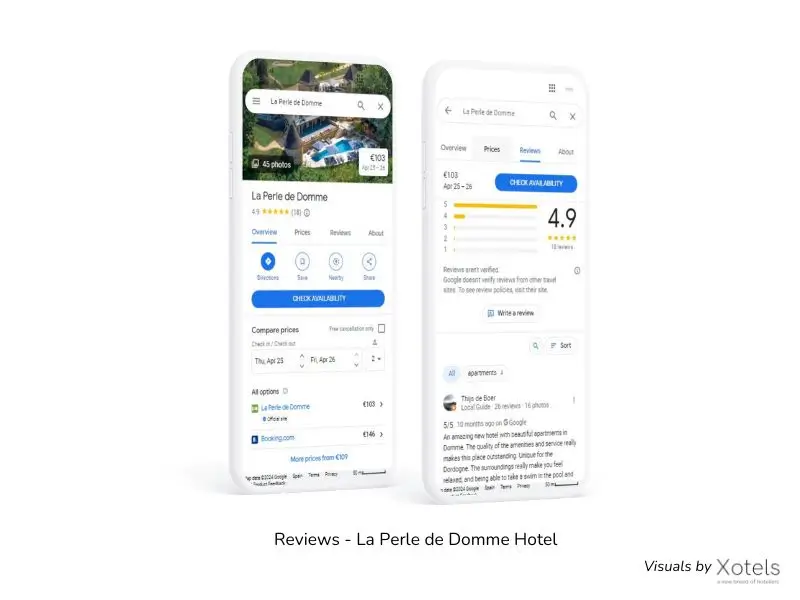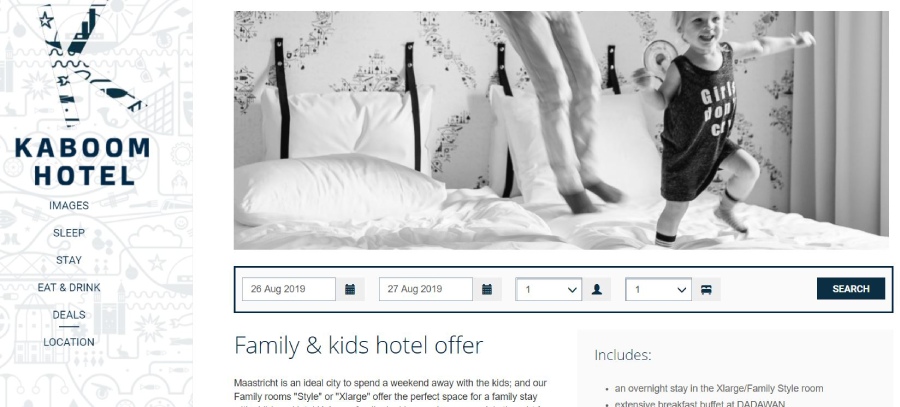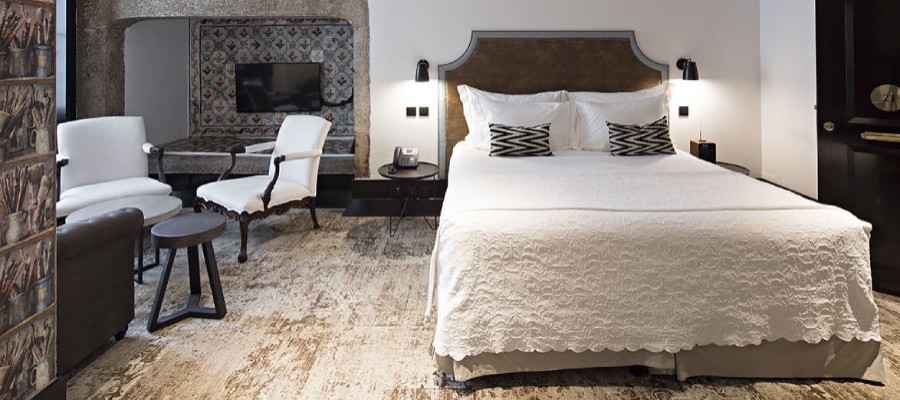In recent years we have written so many articles with advice on how you can increase your hotel’s revenue. While originally hotel revenue management consulting was restricted only to certain areas, XOTELS has been increasingly focusing on total revenue management. Total hotel revenue management includes key methods of improving a hotel’s bottom line by looking at all business areas, including marketing, sales and even concept development. This article provides a collection of over 20 of our most valuable insider tips, which can provide an outstanding platform for you to maximize your hotel’s revenue.
1. Truly Understand Your Market
Knowing your market thoroughly is necessary to manage any business successfully. First, identify your hotel’s strengths and weaknesses, as well as new opportunities for, and threats to, your hotel. Based on this, you can then decide your hotel’s USP(s). Armed with these insights, you can establish what your current guest profile is, and crucially, the profile of your future guests.
By identifying a target market, segmenting it and building a customer profile, you are able to identify the needs and wants of your current and potential future guests. Having this information available allows you to keep up to date with trends and other changes that might affect your customers demands.
With full knowledge of changes in demand, your hotel can focus on offering superior value to your customers. For this, it is important to always keep track of your competitors. A great way to do this is by benchmarking. This enables you to analyze your competition according to price, service levels, locations and distribution channels..
It provides a platform for you to always stay ahead on the level of value offered in your CompSet, which will permit your hotel to differentiate itself by value, instead of by price. This way, you are not pushed into dangerous “race to the bottom” competition with lower and lower pricing. The reason for this is that you are “selling” your hotel based on something that is far-removed from price sensitivity.
For instance, the latest trend in hotels is to offer co-working spaces, which can lead to an increase of your F&B outlet revenue. Other macro trends that have increased in popularity of late include the use of technology, sustainability and personalization. With this knowledge, you can shape the identity of your hotel towards the expectations of the market. While other hotels compete on price, you are able to offer your customers value, for which your customers are more willing to pay a premium.
More information about analyzing competitors can be found in the chapter regarding benchmarking in our Hotel Revenue Management eBook.
2. Develop Monthly and Daily Pick-Up Reports
In revenue management you always aim to adjust the price of your hotel room to the demand existing in the market, in order to post the optimal price per hotel room. For this it is essential to keep track of your hotel’s booking pace.
Revenue managers are increasingly creating monthly and daily pick-up reports to achieve this. The advantage of using pick-up reports is that you are able to gain key insights from comparing the room night pick-up from this year with the previous year and month.
This equips you to set the room price accordingly in order to optimize room revenue, ensuring you sell the Right Room to the Right Client at the Right Moment at the Right Price.
Read our eBook for a detailed explanation on how to use these reports.
3. Monitor Your Hotel’s Unconstrained Demand
Being aware of the total demand in your market will help you to calculate rates for future dates. Knowing the unconstrained demand is key. You can, therefore, keep an up-to-date log of all denials for both individuals as well as group bookings.
In periods where high demand is certain within your market, e.g. Christmas, your hotel’s unconstrained demand is often higher than its inventory.
Knowing that demand exceeds supply for specific dates, you are able to increase your prices and maximize revenue potential.
More detailed information regarding this topic can be found in the chapter “Unconstrained Demand” in our eBook.
4. Utilize Demand Forecasting
Demand forecasting is vital to maximizing hotel revenues. It enables you to plan ahead and reflect on your pricing decisions later on, allowing you to learn from past mistakes and optimize for the future.
As a result, your forecasting precision improves incrementally with actual demand, positioning you to act on opportunities and minimize unexpected surprises, and thereby optimize your hotel’s revenue potential.
Our eBook goes into more detail about the methods needed for successful demand forecasting, such as developing a budget and creating a demand calendar.
5. Dive Deeper into Seasonality Opportunities
Every hotel varies in demand during certain periods and days. High demand seasons, national holidays, local festivities and events that re-occur each year are essential to keep in mind.
When setting out to optimize your hotel’s revenue, you must make sure to price your rooms and services accordingly, in order to capture the higher demand at the right price. When you are pricing your rooms without considering higher demand on these dates, your hotel’s rooms might sell out early, at a price way below the possible rate, representing what may be a considerable opportunity cost. And it’s not only high demand seasons that are in need of special attention, but also shoulder seasons too. These periods, in between high and low season, are perfect for offering special discounts and other deals, which can stimulate demand.
6. Control your Guests’ Stays Patterns
When looking at specific dates with high demand your hotel might want to control the length of guest’s stays. By adding restrictions such as minimum or maximum length of stay, you can ensure that your hotel avoids booking out for only one specific date, but also for the days before or after. This allows you to capture demand and increase profitability during times where your hotel is normally not fully booked. Controlling and restricting your guests’ stay allows you to optimize revenue during chosen periods.
In our eBook more details and examples of stay restrictions and controls can be found.
7. Get More Rigid with Cancellation Policies
As recommended previously, demand forecasting is key to effectively increasing your hotel’s revenue. This tip means nothing, if your cancellation policy fails to ensure reliability of guests’ reservations.
High cancellation rates lead to inaccurate forecasting, which directly translates into lower profits. The best solution to prevent late cancellations and improve forecasting is by getting more rigid with your cancellation policies.
You can either stop allowing cancellations altogether, or charge a fee if customers wish to do so.
If you are interested in more information on how to develop great cancellation policies please read our blog post here: Managing Hotel Cancellation Policies.
8. Foster Direct Bookings
With the days of travellers contacting their local travel agencies long gone and Online Travel Agencies (OTAs) being the biggest booking channels for your hotel, direct bookings are absolutely critical.
Although OTAs are useful and allow your guests’ to easily and efficiently compare and book hotels, for hoteliers they can really put a dent into the bottom line. With the high commissions charged on each booking, your hotel should make sure to get as many direct bookings as possible. This allows you to decide the rate and receive the whole payment. This way, you decrease the amount you have to pay to OTAs, but to actually receive direct bookings you must compete with them.
Succeeding against OTAs can only be done by creating a sound marketing plan that is able to drive direct sales.
The first step in your marketing plan should definitely focus on the optimization of your hotel’s website SEO and booking engine, as this will help you to stimulate conversion, thereby increasing direct sales.
Discover how to reduce OTA commissions by developing a brilliant direct hotel bookings strategy here.
9. Inform Yourself on what OTAs are Really Doing
While OTAs have significantly greater marketing budgets than any independent hotel could possibly have, it does not mean that you should just give up.
By staying informed on what OTAs are doing, you can actually benefit from the insights you glean. External booking channels have become an extremely useful addition to direct bookings.
You can maintain control in-house by adjusting your rates to what external booking channels use. And you can also check if the information that they provide guests with is correct and up-to-date, as this type of information is key to the success of your marketing.
Check out our blog post for more essential tips on OTA revenue management here.
10. Protect Your Brand From Brandjacking
Your official website’s rates have to be displayed on Google Hotel Ads. Booking via this platform has been consistently increasing in popularity and therefore you must ensure that your hotel is represented accordingly. It will, in many cases, be the first impression that a potential guest gets of your hotel.
Also, make sure to buy branded keywords on Google Ads. If you don’t, the first three sites displayed in Google’s search results will be OTAs, taking advantage of your brand name(s) as keywords at your expense.
Concerning SEO and organic results, it’s important that your official website is displayed in the first position on its main trademarks or hotel name as typed by users. Your website usability and quality of Internet Booking Engine (IBE) is key.
For instance, if a potential guest types in your hotel’s name on Google, visits Booking.com first, then takes a look at your website, but finally returns to Booking.com to purchase, Google will take note of this and thereafter rank you lower next time a user searches for your hotel.
Read more on how to protect your hotel from brandjacking on our blog here.
11. Offer Packages and Deals When You are Profitable
Offering packages is a great way to incite guests to choose your hotel over one of your competitors. Most people are drawn to discounts, deals and packages. And the anticipation of missing out on a discount is a pain that people would rather avoid.
When offering the right deals at the right moment, guests are more likely to choose your hotel when comparing options. To use packages and other deals in a profitable and successful way, they should be adapted to the season and, if needed, occupancy rate.
In our article about driving ancillary revenue we spoke about which and when different types of packages can be used in hotels.
12. Gain Essential Feedback From Online Reviews

Online reviews and feedback can make or break your hotel’s reputation. Before finalizing the hotel booking, most potential customers take a look at the hotel’s reviews. In order to stay on top of your reviews and improve your brand’s reputation it is essential to respond regularly to feedback, positive as well as negative.
By doing so you can show your customers that you care and acknowledge their opinion. When guests see that you respond regularly, they are more likely to give feedback on their experience, which allows you to improve the different facets of their customer journey.
Also, when potential guests see a negative review and notice that you apologized and handled the situation professionally they are more likely to perceive the bad review as an exception. When replying to negative comments, make sure to recognize the feedback, thank the person for it and ensure that the issue will not occur again.
There are many ways to ask guests for feedback. A few options are to send a post-stay email with a discount and a request to leave a review, to mention it personally during their stay or to direct your hotel’s wifi, after log-in, to a page which asks for feedback.
Would you like more information on this topic? Check out our blog post on improving your guest review scores.
13. Assure a High Level of Value
If you’re wondering why your hotel is not getting any bookings in comparison to your competitors, while offering the same price, it might be because you are not providing your customers with enough value. The hotel sector is highly price-sensitive which means that value is essential. As mentioned in our article regarding successful revenue management, focussing on value is key.
There are two main steps to promoting your hotel and thereby highlight its value. First of all, make sure to clearly provide an overview of your hotel’s USP, which might entice your guests to book. Second, keep the promise you make and ensure that the value promoted is actually delivered to the guests when they stay with you.
A guest’s experience and review is often dependent not only on your hotel’s rooms and facilities but also on the performance of your employees. It is proven that engaged, empowered and motivated employees perform better. To assure that this applies to your employees, you must ensure that the full team is on the same page regarding all aspects of the hotel, concerning the quality of services, the way of communicating and overall strategic goals of the hotel.
There are many other ways to bring value to your hotel, such as upgrading your facilities, adding extra services and overall providing a unique and memorable overall guest experience.
14. Use Social Media Platforms to Their Full Potential
Social media platforms are often underestimated, but are a great way to reach your guests. When using these digital tools it is smart to develop a strategy in order to stay consistent and organized.
A good first step is to choose which platforms to focus on, depending on your type of accommodation and the potential guests. These days, Instagram is a popular platform for hotels. If you are already using instagram, or if you are considering it as one of your promotional tools, our recent post about managing Instagram as a hotelier is a must-read.
After the preferred platforms are chosen, a schedule which defines when you will post what kind of photos or updates needs to be agreed upon. There are endless options for sharing promotional content online. A few suggestions are to post photos of your hotel itself, the area in which it is located or what activities to do nearby your hotel.
Other options include introducing staff members with a photo and small bio description, or sharing the best customer reviews. Of course, influencers have taken the stage in many social media platforms and are a very powerful method of stimulating demand towards your hotel as well. By inviting an influencer that has a strong customer reach in your target market you can increase demand considerably.
15. Implement Room Type Segmentation
Hotel rooms are a powerful tool for every revenue manager. The commercial positioning of your hotel can be improved by implementing room type segmentation.
In short, this means offering rooms with different sizes, prices and designs in order to reach a wider audience. It is best to decide during the design and concept development phase what the most profitable room types are for your hotel, so the development of the hotel can be adapted accordingly.
Discover a detailed treasure trove of information about implementing room type segmentation right here on our blog.
16. Drive Incremental Revenue with Upselling
Upselling is a smart and efficient way to encourage guests to spend more. This way of driving ancillary revenue can be applied online as well as offline. Online you can use upselling tools which encourage customers to increase their spending by offering room upgrades for example.
Offline, upselling can be done upon arrival at the reception – by offering a last minute upgrade or an extra service. When applying this method, always be aware to offer the right upgrades at the right moment to the right guest.
Our blog article about generating ancillary revenue management provides more tips on how to apply exceptional upselling methods at your hotel.
17. Drive Incremental Revenue with Cross-Selling
Similar to upselling, cross-selling can boost your revenue as well. While upselling is mainly focused on encouraging guests to spend more on the same product or service, cross-selling is concerned with selling complementary services.
These can be add-ons, excursions organized in cooperation with third parties or extras such as spa visits.
Both upselling and cross-selling can be done internally as well as via an IBE or Group Central Reservation Department.
Access more information about cross-selling in our recent blog post focused on incremental revenue boosts.
18. Utilize Spaces Efficiently
Many hotels have spaces which are not currently used to their full potential. These could be meeting rooms which are barely used or a lobby which is significantly larger than needed.
In our article regarding incremental revenue we mention that leveraging underutilized areas can be realized by, for example, turning the lobby into a co-working space or opening a meeting room for business/private events.
The possibilities are endless, as there are many creative solutions available depending on your hotel’s location, size and type of guests.
19. Attract Niche Markets
Differentiating your hotel from the competitors can be accomplished in many ways. At Xotels we believe that specialization focused on a niche market is a great way to attract a different target guest than other hotels in the area. Also, appealing to a specific group of people allows new ways of increasing revenues, for instance, by offering services and products targeted specifically towards these guests.
As mentioned in previous articles, we have seen that focusing on attracting Luxury Travellers or creating a Pet-Friendly hotel can create many successful opportunities. You can also consider becoming a Family-Friendly or Female-Friendly hotel. This type of strategic move allows you to create a different product offering and attract a target market that your hotel was previously unable to capitalize on.

20. Apply Technology Effectively
Currently, a wide variety of tools and systems are available for the hotel industry. A Central Reservation System (CRS) is a great tool to use for reservations and a Revenue Management System (RMS) can increase your revenue significantly.
Modern technology can make complicated tasks such as organizing reservations and managing revenues faster, more efficient and easier to understand for all employees – but it also has a downside.
When applying too much technology to aspects of your hotel where it is not needed, it can disrupt the human interaction instead of enhancing the overall guest experience. We recommend that you choose your technology carefully and avoid any over-reliance on it to create an optimal balance to allow your hotel to run efficiently while facilitating human interaction.
21. Apply Total Revenue Management
Last but not least we look at total revenue management. After reading the tips above, it must have become clear that revenue management can be applied to all areas of your hotel. In order to allow all operations to run smoothly and reach their full potential, the same revenue strategy should be applied throughout all your hotel services.
In our article about Total Revenue Management this topic is discussed in detail. By maximizing all revenue streams, optimizing guests’ spending during their stay and by developing a company-wide total revenue management culture, your top and bottom line profits will be in an outstanding position to see marked increases.
A Final Word
We hope that these 21 tips provide valuable, actionable insights into how you can best increase your hotel’s revenue. Some are relatively easy to implement while others might take more time and may require you to hire expert help from hotel revenue management consulting experts. In the long term all are proven to pay back the effort invested and are guaranteed to increase your revenue.






